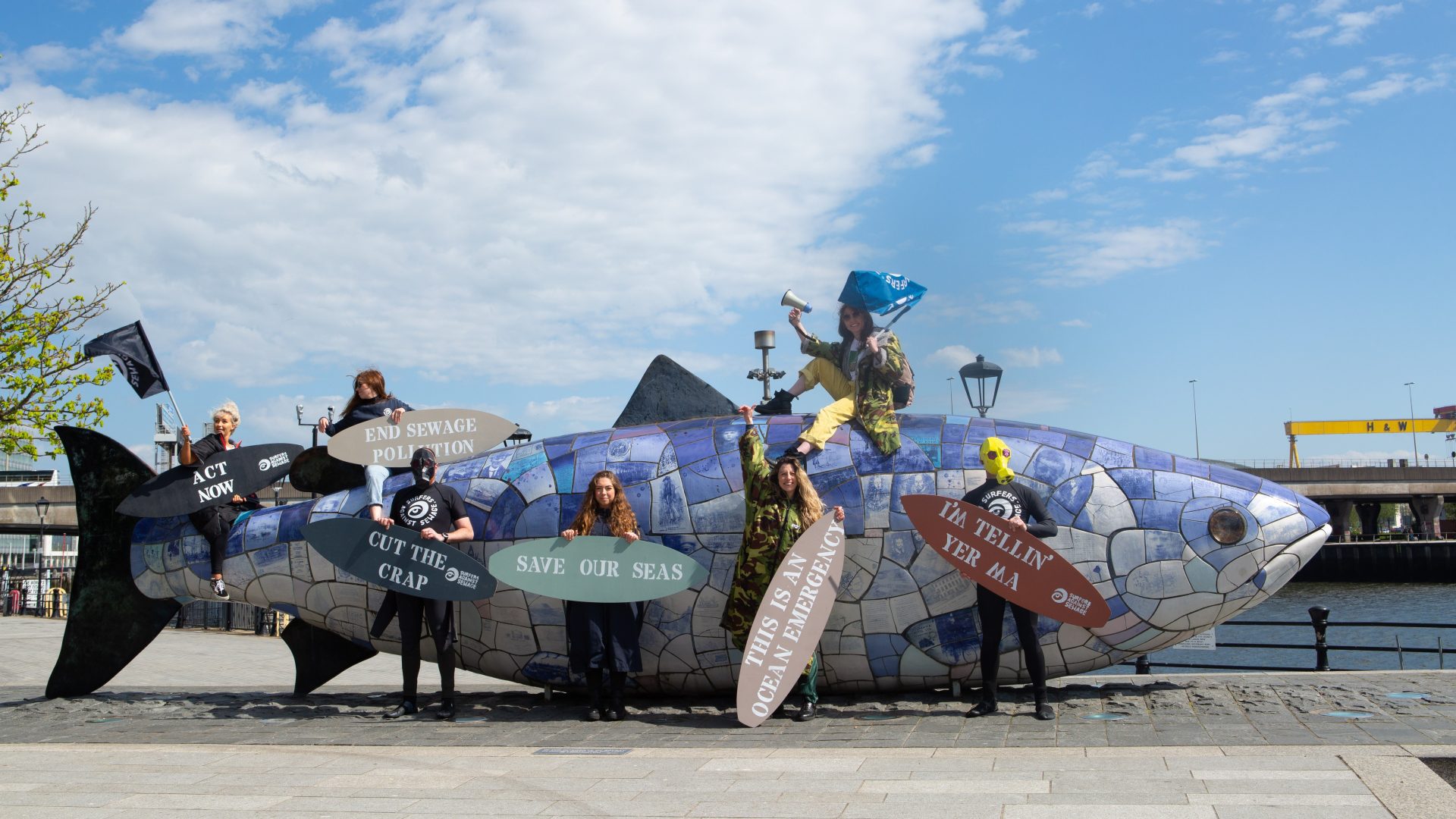Postdoctoral researcher Saskia Papadakis reflects on her experience of travelling the across the UK to record dozens of oral history interviews for the project.

Saskia recording an oral history interview
‘Is this the first time you’ve come across us greenies?’ a participant asks as he shows me out. We’ve just spent seven hours together, recording the first half of his life story. I’ll be back for another seven-hour session in a couple of months.
Before we started recording interviews last spring, I spoke to friends in the environmental movement, but their stories of Reclaim the Streets and Climate Camp had not prepared me for this year of interviewing. I have sat in living rooms and offices and kitchens and Quaker meeting rooms across the UK, listening to the stories of people who have dedicated their entire lives to a cause that has often been unpopular, unrecognised, dismissed, and criminalised. And yet the passion gleams in the storytellers’ eyes. Whilst I never tire of hearing about interviewees’ childhoods, their parents, the landscapes and animals that have shaped their love for the environment itself, there is aways a moment in the interview where we land on the topic that brought that person into the environmental movement. Fracking, rivers, birds (lots of birds!), nuclear power, corporate power, social and racial injustice, trains, roads, plastics, walking, Sitka spruce, school strikes – the causes and campaigns and inspirations might vary, but that gleam in the eye doesn’t change.
This passion has had a profound impact on UK society. From teenagers to nonagenarians, from people with comfortable houses and secure jobs to people without homes and who are barely scraping by, from collaborators of King Charles to anti-imperialists, the ‘greenies’ we are interviewing have changed the way we understand the world. It is a privilege to sit with them, to hear their narratives, to share meals and ideas and meet their families, colleagues and pets. In Norfolk, I had a wild evening listening to stories of tunnels being dug under Leyton during the anti-roads protests; in Sheffield I was chided for being a slow walker as I was speed-marched to the station (I’m a Londoner – that hurt). In the North of Ireland, my participant’s husband turned out to be a cousin of my mother’s, and I discovered a new side to my family, one which has brought renewable energy to the island of Ireland.
I challenge anyone to spend twelve hours recording someone’s oral history and not be changed by it. Sometimes it’s unsettling – I’ve spent a lot of time pondering whether I should have been an environmental activist, a wind power entrepreneur, a landscape gardener, trained in law, worked in international development, held on to my Catholic faith, spent my childhood birdwatching. But all these musings speak to the central feature of the oral history interviews, which is the level of trust, empathy and care that is necessary for someone to share their life story with you. When that life story is one of ceaseless struggle to build a city farm, public transport infrastructure, international climate treaties, then it’s hard not to pulled in by the justice of the cause.
And yet this is exactly why it’s important that I am there, not as fellow campaigner, but as an oral historian. Anyone can look up an account of what happened at Twyford Down in 1993, but with oral history, you can hear the emotional resonance of that campaign for the people who were there; what they think happened, and how they see their experiences in the broader context of their lives. By recording those memories, we’re creating an archive of a vibrant, sprawling, chaotic movement that has forced wider society to acknowledge that we ignore the environment at our peril. For my part, I’m happy to sit back and listen.
























